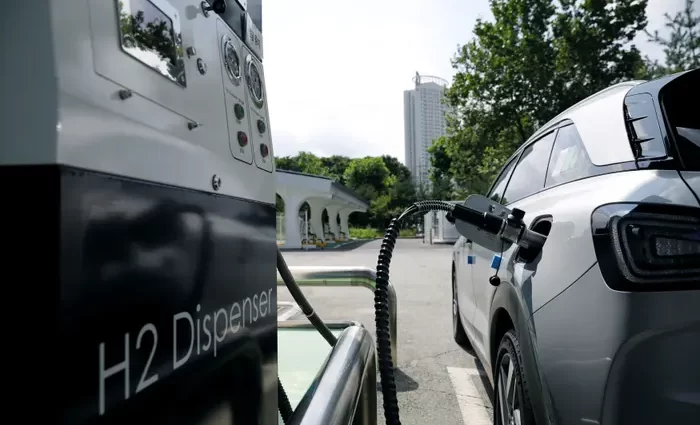Many businesses are searching for solutions to reduce their dependence on fossil fuels, including switching vehicles and equipment over to alternative fuel sources like natural gas, biodiesel, ethanol or hydrogen.
The ideal solution depends on your unique operating conditions and objectives, but all potential solutions should be sustainable with high life cycle energy efficiency.
Hydrogen
Hydrogen is an eco-friendly fuel option, emitting only water vapor when burned – an ideal alternative to fossil fuels which release carbon dioxide and other toxic pollutants into the environment.
Like other alternative fuels, hydrogen is a clean energy source but requires significant amounts of power for production and storage in its gaseous state. Therefore, developing cost-effective methods of producing and transporting hydrogen remains one of the main challenges.
One promising method of producing hydrogen is through electrolysis using surplus electricity from wind or solar plants, with stored hydrogen waiting for use when needed. Nikola’s heavy-duty trucks already make use of this approach by running on hydrogen fuel cell electric technology that combines pure hydrogen and oxygen in their battery to generate electricity – providing a clean, safe, high performance energy option that can address long-haul transportation, chemicals manufacturing processes, iron and steel production and decarbonising aviation sectors among many other issues.
Biodiesel
Biodiesel is an alternative fuel made of vegetable oils, animal fats or recycled cooking oil that has been processed into biodiesel. It can be used as either an independent source or mixed up to 20% by volume with petroleum diesel to form B20 blends.
Biodiesel produces less greenhouse gases than petroleum diesel and has a higher cetane number, helping the engine run more smoothly. Furthermore, its flashpoint is higher and therefore it poses less of a danger if spillage occurs.
Biofuel can be produced using various renewable feedstocks such as soybeans, rapeseed and oil palm. Unlike fossil fuels, biofuels have a positive life cycle energy balance while biodiesel production has the potential to significantly lower greenhouse gas emissions.
Ethanol
Ethanol holds great promise as an alternative fuel source for vehicles that cannot use electric motors (including buses, lorries and trucks) and may even serve to supplement diesel usage in trains. Ethanol is produced from renewable biomass sources like corn, wheat or canola and can also be blended with traditional fuel sources to run conventional engines.
Converting vehicles to run on biofuels can be challenging. Biofuels tend to be more costly than gasoline and diesel, requiring significant investments, while their effects vary on engine performance and operation.
However, the use of biofuels as an alternative fuel may result in reduced efficiency and emissions, depending on how the vehicle is designed to run. Many projects are now looking at creating flexible fuel vehicles capable of using either E85 or gasoline as their driving source to meet both operational and environmental goals with maximum fleet flexibility in mind.
Electricity
Electricity can be generated using alternative sources such as wind and solar power, hydrogen electrolysis production using fossil fuels, dedicated biofuel crops, waste or microalgae; powering plug-in hybrid, electric vehicle (PHEV), fuel cell cars or even extended electricity networks that supply energy across regions or nations.
Alternative fuels offer businesses a clean, green source of energy while simultaneously decreasing reliance on foreign oil supplies and GHG emissions. Businesses considering switching over should anticipate higher energy prices until these technologies become more widely available.
Businesses operating delivery trucks, buses or any commercial fleet reliant on combustion engines may consider switching to alternative fuels as a means of showing their commitment to sustainability. Determining which type is suitable will ultimately depend on your organization’s core values and long-term transportation strategy.

